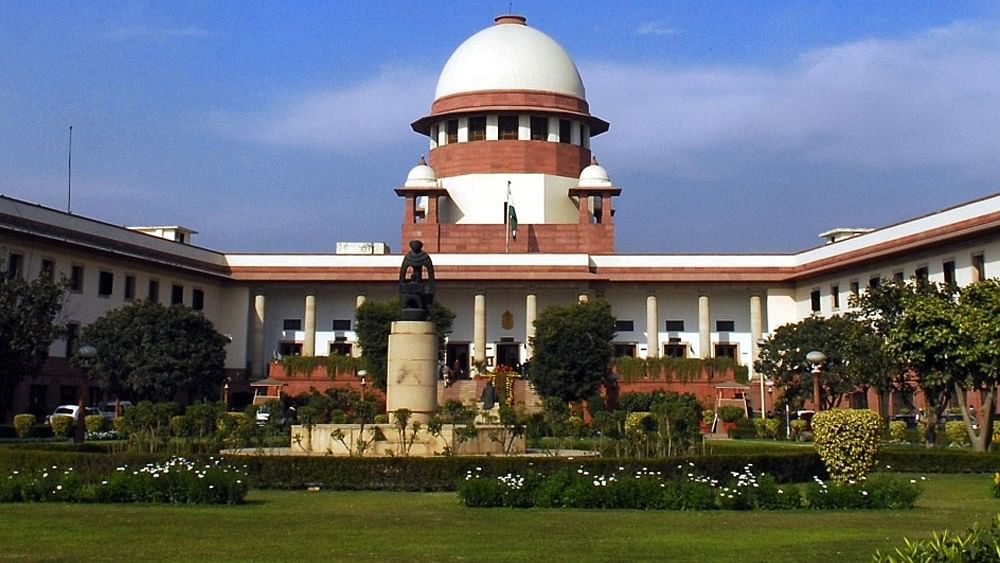
Supreme Court of India.
Credit: PTI File Photo
New Delhi: In a stern message, the Supreme Court on Monday said Governors should not forget that they are not elected authorities, as it expressed displeasure over state governments approaching the top court over the failure of the constitutional body to deal with pending bills passed by state legislatures.
A bench of Chief Justice of India D Y Chandrachud and Justices J B Pardiwala and Manoj Misra also voiced its concern over frequent clashes between Governors and the state governments, saying both sides need to do some soul-searching.
Taking up a plea by the Punjab government against the pendency of seven bills, the bench asked Solicitor General Tushar Mehta to provide details of action taken by the Governor in the matter.
“Why should parties be required to move to Supreme Court for convening the budget session? These are matters to be decided by Governor and Chief Minister,” the bench said.
"Governors should not be oblivious to the fact that they are not elected authorities," the bench said.
Senior advocate A M Singhvi, representing the Punjab government, stated that the Speaker reconvened the Vidhan Sabha, which subsequently passed seven bills. However, the Governor has refused to sign them, arguing that reconvening after prorogation is not allowed.
Singhvi emphasized the need for the court to consider this matter, saying the Governor is withholding approval for the seven bills that were passed by the Vidhan Sabha.
The court, however, asked Singhvi, "Where do you get this from that he's not giving assent because it is prorogued? (sic)"
Singhvi said four bills were sent in June and the letter was sent by Governor to the CM raising objection to the convening of the session and the CM replied but the Governor raised the same objection.
Solicitor General Tushar Mehta, representing the Governor, submitted that the Governor has taken some action in the matter. He said he would provide the details on Friday. He also expressed concern over the State Assemblies using the House for abuse of constitutional authorities.
As Singhvi referred to the Telangana matter, the bench noted that this happened in another state as well and asked, "Why should the parties have to come to the Supreme Court? This has to stop".
Singhvi said in the Telangana matter the state filed a plea in the court and then the Governor said the bills would be passed in April, this year.
With regard to the Punjab case, the bench noted that the Assembly was summoned in March, adjourned sine die and the speaker reconvened it in June.
"Is that really the scheme under the Constitution? You have to hold a session in six months right,” the bench asked.
"Both the sides do some sort of soul-searching. We are the oldest democracy and these issues must be sorted out between the CM and the Governor," the bench said.
Senior advocate K K Venugopal mentioned a similar plea filed by the Kerala government.
He said after filing of the petition by the LDF government related to the pendency of bills for over two years, the Governor said he would respond to the same in the Supreme Court.
The bench noted that the Punjab government has stated that as many as seven bills including fiscal bills that were passed by Vidhan Sabha and the Governor have not been dealt with in the manner required under Article 200 of the Constitution. It also noted the Solicitor General said in the two bills the Governor has taken action.
It is to be noted Tamil Nadu also filed a plea questioning inaction by the Governor on bills passed by the Assembly.
